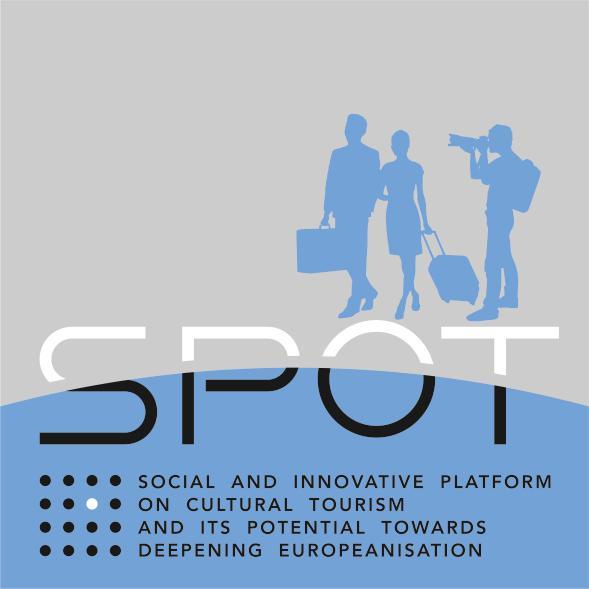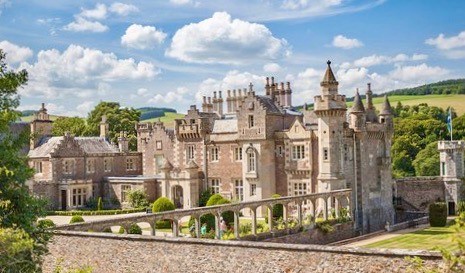
SPOT Project launches at Mendel University in Brno, Czech Republic
The project kick-off included research teams from Israel, Romania, Germany, Hungary, Netherlands, Estonia, Austria, Aberdeen, Greece, Spain, Italy, Poland, Slovenia and Slovakia.
The University of Aberdeen's SPOT project team is one of the 15 research teams participating in this EU funded Horizon 2020 project. Using the acronym 'SPOT', the project's full name is “Social and Innovative Platform on Cultural Tourism and its potential on deepening Europeanisation”. The project is co-ordinated by Mendel University's (Brno, Czech Republic) SPOT team.
The project Kick Off took place at the Mendel University in Brno (Czech Republic) since they are the co-ordinators. However, there are also 14 other partners including: Israel, Romania, Germany, Hungary, Netherlands, Estonia, Austria, Aberdeen, Greece, Spain, Italy, Poland, Slovenia and Slovakia.
The focus of the project can best be described by the Abstract:
''Cultural tourism is changing. The traditional forms still exist - museums, art galleries, landscapes, historical sites, festivals - but both cultural destinations and the tourists are under transformation. Many 'cultural tourists' see themselves neither as seeking culture nor as tourists; there is increasing evidence of people seeking to experience culture rather than merely observing it. That is: agri-tourism where visitors want to experience rural life; people wanting to visit the actual venues of TV crime thrillers; culture being explored by those using themed routes in winery regions or via pilgrimage. These trends provide opportunities to both revitalise poorer and rural areas through economic and social development while protecting local cultures and landscapes. The project sees an extension of existing policies and the promotion of new approaches. The project's aim is to develop an updated approach to understanding and addressing cultural tourism and to promote development of disadvantaged areas. Based on an innovative tool and digital technology the project identifies layers of data and characterizes excellent existing practice, explores emerging forms of cultural tourism, identifies opportunities and seeks to develop strategies allowing local people to gain local benefit from their precious cultural assets. The project uses case studies across 15 European regions, consolidates definitions of 'cultural tourism', engages academics and stakeholders in developing policy proposals in practice and posits means of generalising the lessons via an Innovation Tool to assist policy-makers at all levels as well as practitioners. Positive and negative aspects of cultural tourism exist; a balanced development path needs to be sought. The project will help to identify themes and areas where intervention at local, regional, national and European levels may assist in achieving successful developments and in managing that balance.''
The Aberdeen SPOT project focuses on the impact of media tourism on rural communities in Scotland. In light of the outbreak of coronavirus, our project also examines the impact of covid-19 on communities which typically experience high volumes of media tourists each year. Our goal is to measure the impact of media tourism within these rural communities through working with communities, business and tourism organisations at the local and national level.
The following locations will be studied:
The Borders: Sir Walter Scott and Rural Communities

Abbotsford House is located in the Scottish Borders and is a historic baronial mansion that was once home to Sir Walter Scott. Scott was a 19th century novelist, poet, playwright, and historian who authored famous works including Waverley, Rob Roy, Ivanhoe and Lady of the Lake. Abbotsford House continues to welcome visitors to the house where Scott penned some of his most famous works. The SPOT team's goal is to measure the impact that media tourism, relating to Sir Walter Scott's works, has had on the surrounding community and businesses.
Doune, Stirlingshire: Outlander and Rural Communities

Glenfinnan Viaduct, Scottish Highlands

The Glenfinnan Viaduct is located in the Highlands of Scotland and has become a pilgrimage destination for fans of the Harry Potter novels by J.K. Rowling and the subsequent films. The bridge is known by Harry Potter fans (or Potterheads) for transporting witches and wizards aboard the Hogwarts Express steam train to Hogwarts School of Witchcraft and Wizardry. The SPOT team's goal is to investigate this link between fan travel and perceptions of Scotland by visitors.
The project's official site, as well as any relevant information updates and news can be found here .
Twitter:
Facebook: